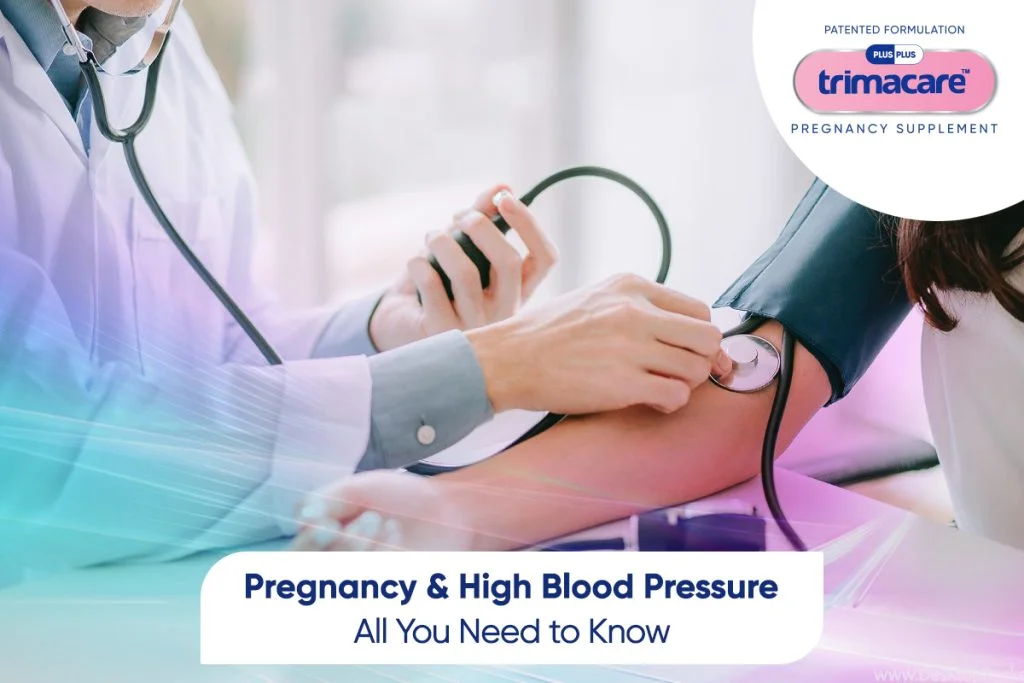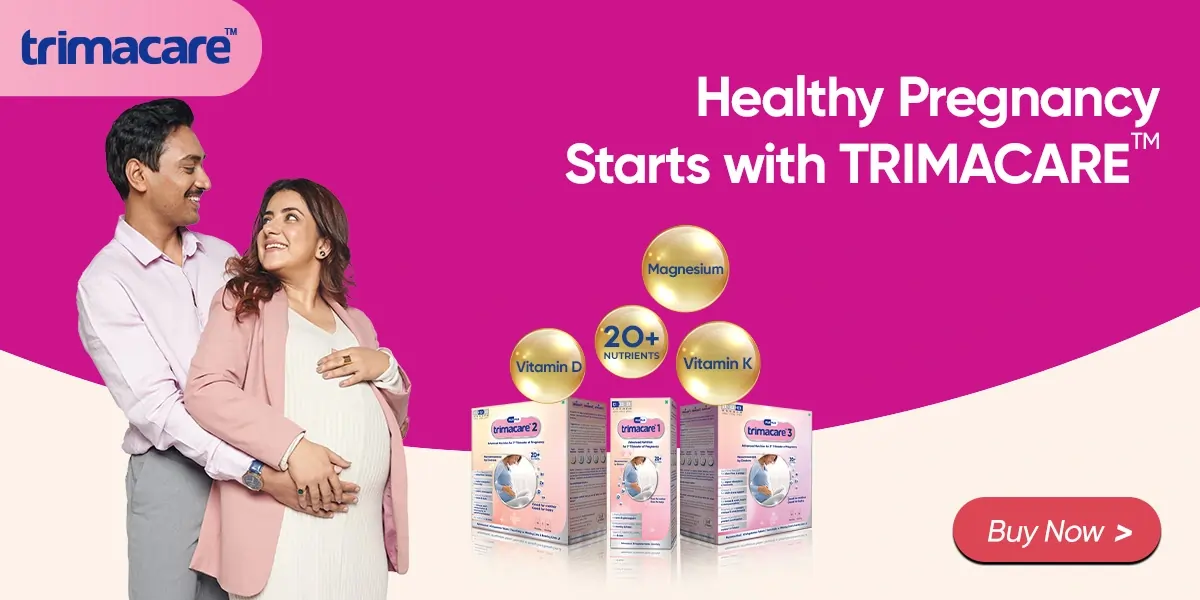Pregnant mothers are extra cautious about their health, as their well-being affects the health of their babies. This makes being aware of pregnancy complications a very important preventive measure, as you can tell your doctor about any symptoms you feel are out of the ordinary.
One such pregnancy complication is High Blood Pressure during pregnancy. High blood pressure or hypertension is when the force of blood pushing against the artery walls is too high.
High blood pressure during pregnancy can be classified into three types
-
-
- Gestational Hypertension – If a pregnant lady develops hypertension after 20 weeks of pregnancy (in a woman who wasn’t hypertensive before the pregnancy) it is considered to be Gestational Hypertension. It can either resolve after pregnancy or lead to more complications such as Preeclampsia & increase the risk of birth complications, along with increasing the mother’s risk of hypertension in the future.
-
- Chronic Hypertension – This type of hypertension starts either before pregnancy or before 20 weeks of pregnancy. The high blood pressure might have been diagnosed during a prenatal visit. Chronic Hypertension can lead to pregnancy & birth complications.
-
- Preeclampsia – This involves a sudden increase in blood pressure during pregnancy, along with the presence of excessive proteins in the urine. It is a high-risk pregnancy complication that requires close monitoring of your gynaecologist.
-
The type of hypertension a pregnant woman is experiencing is determined after assessment by the gynaecologist.
Risk Factors of High Blood Pressure
Some people might be at an increased risk of developing High Blood Pressure during pregnancy. Some risk factors for hypertension include –
-
-
- Family history of high blood pressure
- History of kidney disease
- Pregnancy at an older age
- Being a smoker
- Sedentary lifestyle
- Poor diet
- Belonging to ethnicity at an increased risk of Hypertension
-
If a pregnant lady has any of these risk factors, she might be at an increased risk of developing high blood pressure during pregnancy, making it crucial to take extra measures to keep herself healthy.
Complications of High Blood Pressure During Pregnancy
Several complications are associated with High Blood Pressure during pregnancy, making routine monitoring of blood pressure essential. High blood pressure during pregnancy increases the risk of health conditions such as chronic hypertension, stroke, and heart disease later in life. There’s also an increased risk of developing Preeclampsia & Gestational Diabetes during pregnancy.
Additionally, high blood pressure during pregnancy increases the risk of preterm birth, small birth size, and mortality.
Prevention of High Blood Pressure during Pregnancy
There are a few measures you can take to reduce your risk of developing High Blood Pressure and related complications. These are –
-
-
- Exercising regularly – focus on staying active by walking, doing breathing exercises, prenatal yoga, and prenatal exercises. Always start any exercise routine after consulting your gynaecologist and tell your gynaecologist immediately if you experience discomfort.
- Healthy diet – Consume nutrient-dense foods low in salt with adequate quantities of Macronutrients and Micronutrients.
- Eat Prenatal Multivitamins with Magnesium – Prenatal Vitamins bridge the nutrient gap adequately nourishing you during your pregnancy. Prenatal Vitamins that contain Magnesium, such as Trimacare Prenatal tablets can prevent high blood pressure and preeclampsia.
- Reduce Stress – Indulge in hobbies & meditation to lower your stress levels.
- Optimum Weight – Try to be at your doctor-recommended weight during pregnancy.
-
In addition to preventing Hypertension, these steps also contribute to the overall health of the pregnant woman.
Take Away
High blood pressure during pregnancy is not uncommon, and many women continue to have healthy babies despite a Hypertension diagnosis. Following your doctor’s advice, being regular with your prescribed medications, and following a healthy lifestyle are crucial to minimizing the risk of any complications. Preventive steps such as eating healthy food, staying hydrated, exercising regularly, and eating good-quality pregnancy vitamins help you stay healthy during your pregnancy. What you eat determines the health of you & your baby, so ensure that you’re choosing nothing but the best for yourself.
Frequently Asked Questions:
1. Why is it important to be cautious of high blood pressure during pregnancy?
Hypertension during pregnancy, particularly conditions like toxaemia, can present serious dangers to both the mother and the child’s wellbeing.
2. What are the potential risks associated with high blood pressure during pregnancy?
Dangers of hypertension during pregnancy incorporate preterm birth, low birth weight, placental suddenness, and entanglements for the mother, for example, stroke and organ harm.
3. How can high blood pressure during pregnancy be managed?
In order to prevent complications and ensure the health of the mother and her unborn child, management may include lifestyle changes, medication, and close monitoring by healthcare professionals.
4. Are there any warning signs or symptoms of high blood pressure during pregnancy?
Sudden swelling, severe headaches, changes in vision, abdominal pain, and difficulty breathing are all possible warning signs. It’s pivotal to report any disturbing side effects to a medical care supplier right away.
5. Can high blood pressure during pregnancy be prevented?
Obesity and a history of hypertension, for example, may increase the risk of high blood pressure during pregnancy. However, leading a healthy lifestyle and going to regular prenatal check-ups can help lower the risk and catch any problems early for proper treatment.
A Certified Nutritionist with a rich healthcare background in health journalism, the author has immense experience in curating reader-friendly, engaging, and informative healthcare blogs to empower readers to make informed pregnancy-related decisions.













